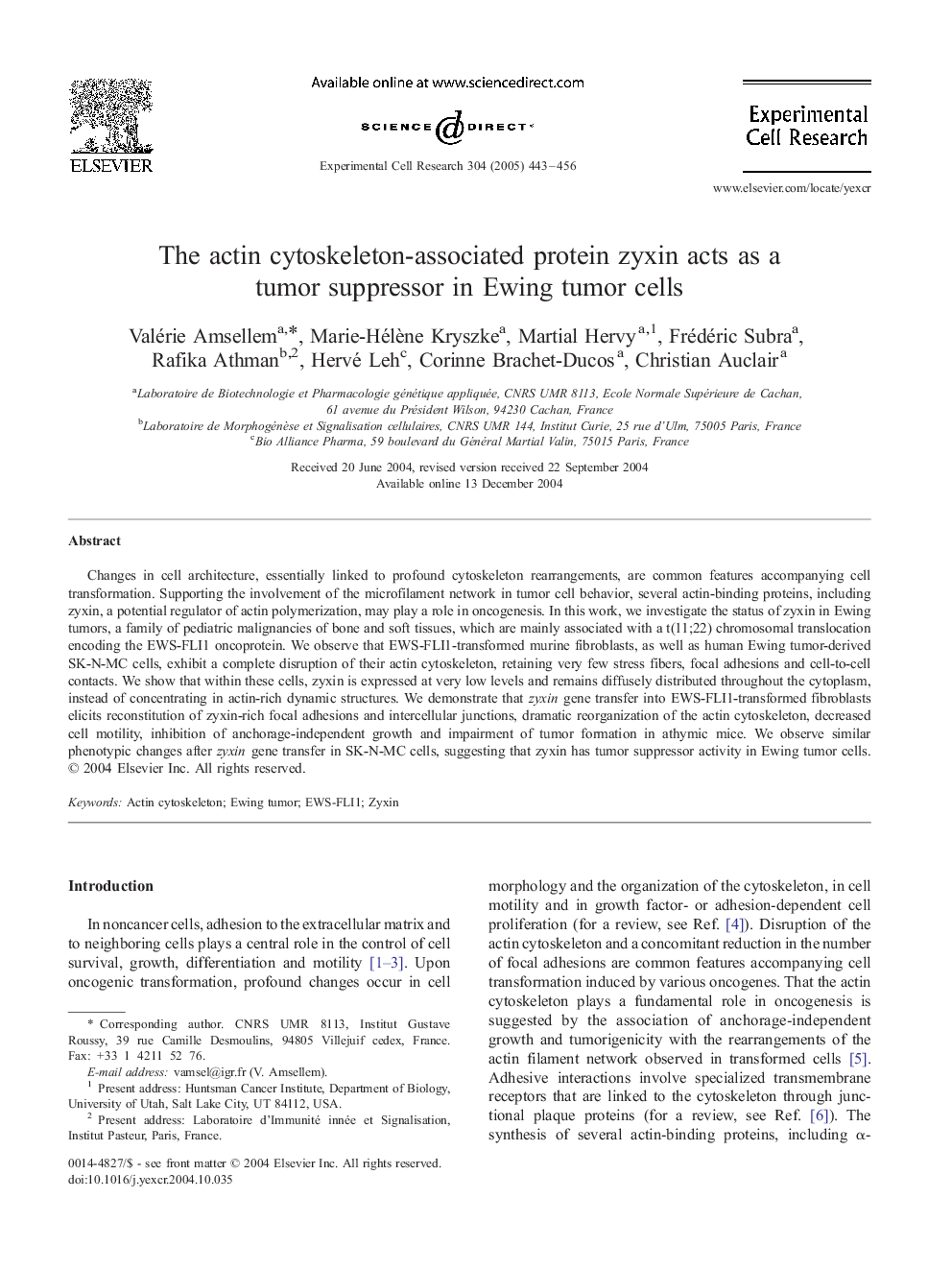| Article ID | Journal | Published Year | Pages | File Type |
|---|---|---|---|---|
| 10905029 | Experimental Cell Research | 2005 | 14 Pages |
Abstract
Changes in cell architecture, essentially linked to profound cytoskeleton rearrangements, are common features accompanying cell transformation. Supporting the involvement of the microfilament network in tumor cell behavior, several actin-binding proteins, including zyxin, a potential regulator of actin polymerization, may play a role in oncogenesis. In this work, we investigate the status of zyxin in Ewing tumors, a family of pediatric malignancies of bone and soft tissues, which are mainly associated with a t(11;22) chromosomal translocation encoding the EWS-FLI1 oncoprotein. We observe that EWS-FLI1-transformed murine fibroblasts, as well as human Ewing tumor-derived SK-N-MC cells, exhibit a complete disruption of their actin cytoskeleton, retaining very few stress fibers, focal adhesions and cell-to-cell contacts. We show that within these cells, zyxin is expressed at very low levels and remains diffusely distributed throughout the cytoplasm, instead of concentrating in actin-rich dynamic structures. We demonstrate that zyxin gene transfer into EWS-FLI1-transformed fibroblasts elicits reconstitution of zyxin-rich focal adhesions and intercellular junctions, dramatic reorganization of the actin cytoskeleton, decreased cell motility, inhibition of anchorage-independent growth and impairment of tumor formation in athymic mice. We observe similar phenotypic changes after zyxin gene transfer in SK-N-MC cells, suggesting that zyxin has tumor suppressor activity in Ewing tumor cells.
Related Topics
Life Sciences
Biochemistry, Genetics and Molecular Biology
Cancer Research
Authors
Valérie Amsellem, Marie-Hélène Kryszke, Martial Hervy, Frédéric Subra, Rafika Athman, Hervé Leh, Corinne Brachet-Ducos, Christian Auclair,
